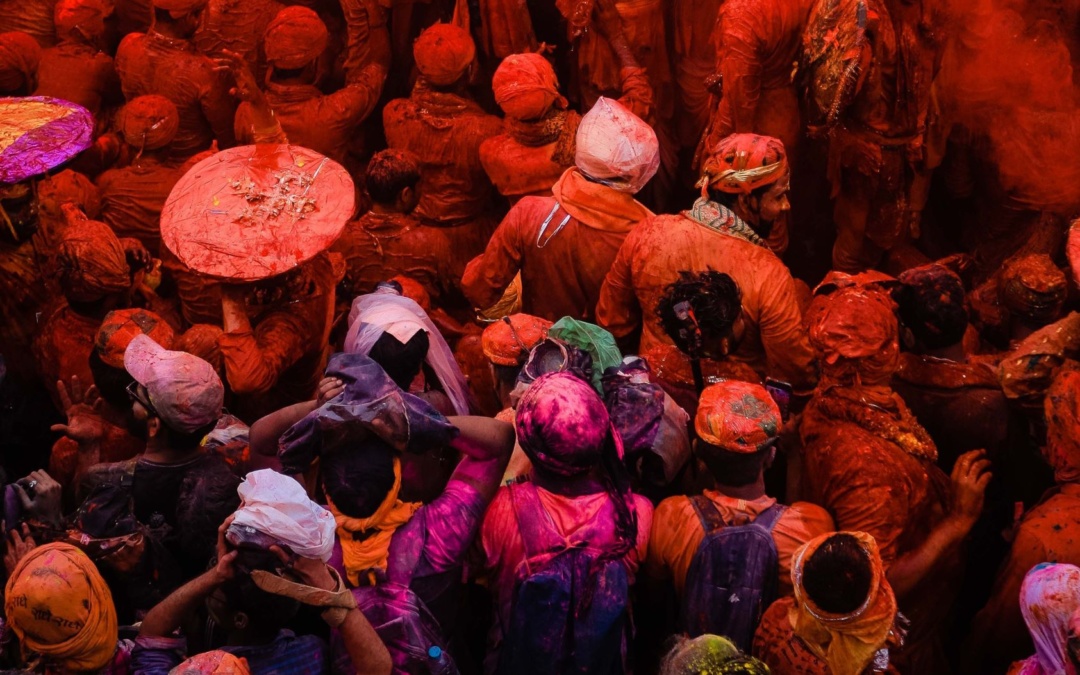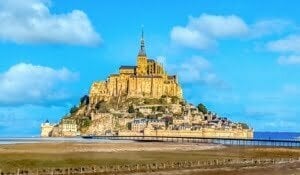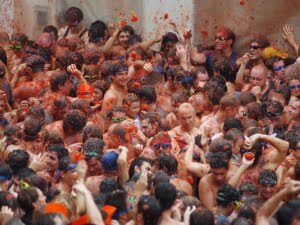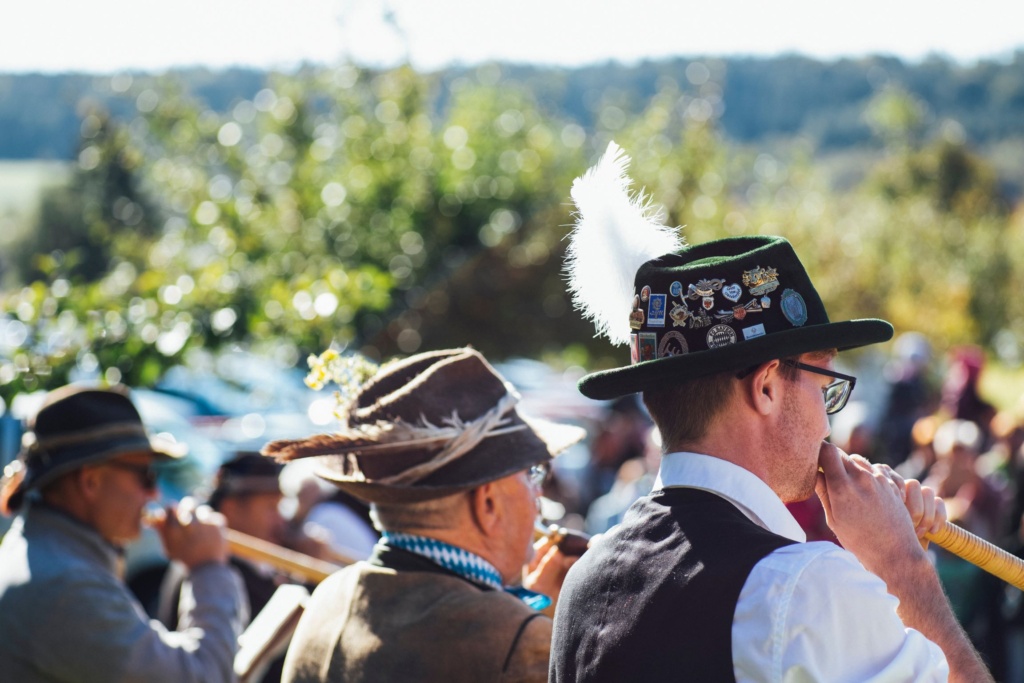Kati and I love going to festivals, even if it is a football (soccer) game televised in the town’s square like we did in Prague. Celebrating culture is an important part of human life. It is a way to express our identity, to connect with our past, and to share our values and beliefs with others. It is also a way to bring people together and to create a sense of community. From traditional festivals to modern-day events, celebrating culture is a way to honor our heritage and to celebrate the diversity of the world.
Traditional festivals have been around for centuries, and they are a way to celebrate the changing of the seasons, to honor religious beliefs, and to commemorate important events. They are often celebrated with music, dance, and food, and they are a way to bring people together to share in the joy of the occasion. In many cultures, traditional festivals are a way to honor the gods and goddesses, and to give thanks for the blessings of the year.
Traditional festivals are an important part of many cultures, and they are a way to celebrate the diversity of the world. They are a way to honor our ancestors and to remember our past. Traditional festivals are a way to express our identity and to share our values and beliefs with others.
There are many iconic traditional festivals around the world, and each one is unique and special in its own way. From the Holi Festival of India to the Oktoberfest of Germany, these festivals are a way to celebrate culture and to bring people together. Here are some of the world’s most iconic traditional festivals:
The Holi Festival of India
Holi, a festival originating from Hindu traditions is widely celebrated in India and Nepal. This vibrant festival symbolizes the arrival of spring and the victory of good, over evil. People enthusiastically participate in Holi by throwing powder and water at each other. It is often referred to as the “Festival of Colors” or the “Festival of Love”. Typically falling in March Holi takes place on the full moon day of the Hindu month Phalguna.
The history of Holi dates back centuries. Is rooted in Hindu mythology. One known legend associates Holi with Lord Vishnus triumph over the demon king Hiranyakashipu. Another popular tale revolves around Lord Krishna and Radha wherein Krishna playfully applied a powder to Radhas face due to his envy for her complexion. Hence Holi gained its reputation as the “Festival of Colors”.
Holi holds significance as a time for celebration and unity, among people. It serves as an occasion for communities to come together and rejoice in welcoming springs arrival.
Now is the moment for individuals to put aside their disparities and unite in a spirit of harmony. Holi serves as an opportunity for individuals to let go of any grievances and start anew. It is also a time when people can openly express their love and affection towards one another.
The Oktoberfest of Germany
Octoberfest is an event, in Munich, Germany that celebrates culture. It is renowned as the premier beer festival and folk festival in the world taking place from September to early October each year. With millions of visitors from all corners of the globe it’s a time for people to come together and revel in traditions, including food, music and certainly beer.
The origins of Octoberfest date back to 1810 when it was initially organized to commemorate the wedding of Crown Prince Ludwig and Princess Therese of Saxe Hildburghausen. Originally featuring horse races this celebration has evolved over time to incorporate attractions like carnival rides, parades and notably beer consumption. Today it stands as a symbol of heritage cherished worldwide.
Undoubtedly the highlight of Octoberfest lies in its assortment of beers. This grand festival showcases over 6 million liters sourced from six breweries in Munich. Additionally, visitors can relish cuisine such, as sausages, pretzels and succulent roasted chicken while enjoying exciting carnival rides and lively musical performances. It truly offers an opportunity to immerse oneself in culture while having a splendid time.
Octoberfest has had an influence on culture bringing people together to commemorate their heritage. This festival has become an emblem of culture and is celebrated globally. There is even an Octoberfest celebration here is southwest Florida. Additionally, it has made an impact by generating annual revenues exceeding 1 billion euros.
The Rio Carnival of Brazil
The Rio Carnival is an event held in Rio de Janeiro, Brazil. Its renowned, as one of the liveliest and known festivals worldwide attracting millions of visitors annually. This celebration is about joy and merriment featuring parades, energetic music and extravagant costumes. It serves as a time for people to unite and commemorate the culture and traditions of Brazil.
The Rio Carnival finds its roots in the festival called Saturnalia dedicated to honoring the god Saturn. This festival involved feasting and revelry eventually spreading to regions, across the globe. In Brazil Portuguese settlers introduced this tradition during the century. Over time it has transformed into the colorful celebration that we witness today.
The Songkran Festival of Thailand
The Songkran Festival is an event that celebrates the Thai New Year. It takes place from April 13th to April 15th every year. Is a time of festivities and introspection. During the festival people engage in activities such, as water battles, parades and traditional rituals. The term “Songkran” originates from the Sanskrit word “” which signifies a period of transition or change. This name aptly reflects the festivals purpose as it marks the transition from one year to another.
Thai people have been celebrating the Songkran Festival for centuries. Its origins can be traced back to the kingdom of Sukhothai established in 1238. Initially it was an occasion for paying respects to elders and expressing gratitude for blessings received in the year. As time passed new elements were added to make it more vibrant including water fights, parades and traditional ceremonies.
The Songkran Festival involves celebrations. One popular activity is engaging in water fights, which provide a respite from Thailands scorching sun.
During the festivities individuals actively participate in parades adorned with Thai attire and accompanied by lively music. Additionally part of the celebration involves releasing birds and fish as presenting food and beverages to the revered monks.
The La Tomatina Festival of Spain
The Tomatina Festival takes place annually in Buñol, a town, in the Valencia region of Spain. It’s a one of a kind and enjoyable tradition where people engage in a tomato fight. Throughout the years this festival has gained popularity attracting visitors from around the globe. Joining in on the fun is a way to immerse yourself in culture while having a great time with friends and family.
Since 1945 Buñol has been hosting the Tomatina Festival. It is said to have originated from an altercation between two groups of individuals in the town square. Although authorities intervened to stop the fight throwing tomatoes at each other became a tradition. As time went on this festival grew exponentially in popularity. Now draws participation from people from all over the world.
The Tomatina Festival occurs on a Wednesday of August each year and requires weeks of preparation beforehand. The town square gets adorned with banners and flags. Also, trucks filled with tomatoes generously donated by farmers line up along the streets.
The Tomatina Festival kicks off with a fireworks show. It is then followed by the tradition of retrieving a ham from a greased pole. Once the ham is successfully obtained, the thrilling tomato fight commences. Participants engage in an hour long tomato tossing extravaganza until a signal prompts them to halt. After the battle the streets are washed down. Diligent efforts are made to tidy up the town square.
Our Final Word
Celebrating culture is an important part of human life, and traditional festivals are a way to honor our heritage and to celebrate the diversity of the world. From the Holi Festival of India to the La Tomatina Festival of Spain, these iconic traditional festivals are a way to bring people together and to create a sense of community. They are a way to express our identity and to share our values and beliefs with others.
Related Posts
I weep for America
I woke up this morning feeling a sense of doom in the world. I feel that I do not even know the country that I live in any longer. As someone that travels throughout the world and tries to make connections with the people and wildlife that I come across, it was incredible that America elected someone like Donald Trump. It is incredible that people would vote against their own best interest and seem to be happy about it. It is incredible how many racist, misogynistic and uneducated people there are in America.
Unlocking the Magic of Forest Bathing: Reconnecting with Nature for Inner Peace
“Step into the enchanting embrace of the forest, where nature’s healing powers await. Unlocking the Magic of Forest Bathing is your guide to rediscovering the profound connection between humans and the natural world. Immerse yourself in the serenity of the trees, breathe in the rejuvenating air, and find inner peace amidst the whispers of the forest.”
Discovering Kenya’s Natural Wonders: An Epic Safari Itinerary
Embark on a thrilling adventure through Kenya’s breathtaking landscapes and encounter its magnificent wildlife. From the vast plains of the Maasai Mara to the stunning peaks of Mount Kenya, this epic safari itinerary will immerse you in the wonders of nature. Get ready to witness the circle of life unfold before your eyes.












0 Comments